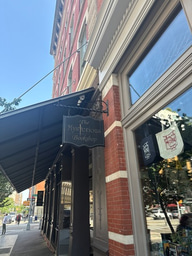- While all Laidlaw Scholars will be presenting their research at the Columbia Undergraduate Research Symposium in the fall, what are the more immediate expectations that you have for your research? Are you writing a paper? Will your research be part of a larger scientific study? Do you hope to produce an annotated bibliography that you reflect on down the line? Is your research now the first phase of a project you’ll continue to work on throughout the year, and/or next summer? Now that we are nearing the one month mark of the program, please write about your expectations for your research.
I am hoping to create:
1) an annotated bibliography with all of the sources that I have read in sociology, political science, psychology, social psychology and anthropology on partisansism and its impact of social cohesion.
2) I am going to create a website (using arcGIS) to highlight the interview and archival data that I collect based on my sample neighborhoods)
- Why does your research matter? Explain the significance of the question you are investigating, and why you are interested in it.
As demonstrated by our growingly divisive and polarized political climate, the divide between liberals and conservatives, Trump supporters and not Trump supporters, is growing practically exponentially. Using the regional measurement of neighborhoods, limited scholarship has been dedicated to understanding how local level (municipal, neighborhood) communities are being impated by these changes. Therefore by studying the 200 neighborhood tabulation areas in New York by both looking at the variables of changes in voting behavior, social cohesion (community vitality), and poverty rates, this scholarship investigates statistical evidence which looks at these observable patterns through statistical analysis (multi-variate regression).
After doing this, I will take a closer look at the most impacted communities, by including interview data from residents which will allow for community narratives to depict the living realities of these communities and serve as a step towards advisement for community solutions (for community organizers, policymakers etc).
Personally, as I begin a career in politics which aims to appeal to a wide ideologically and demographically diverse audience, and as the product of a Republican and a Democrat, this research is helping me better understand the social and economic factors that are impacting political ideology in NYC and the greater US.

Please sign in
If you are a registered user on Laidlaw Scholars Network, please sign in
Wow Taylor - this sounds like an incredibly timely and well-rounded project. I love your interdisciplinary approach of combining both qualitative and quantitative methods and I’m especially excited by the idea of using ArcGIS to make your research publicly accessible.